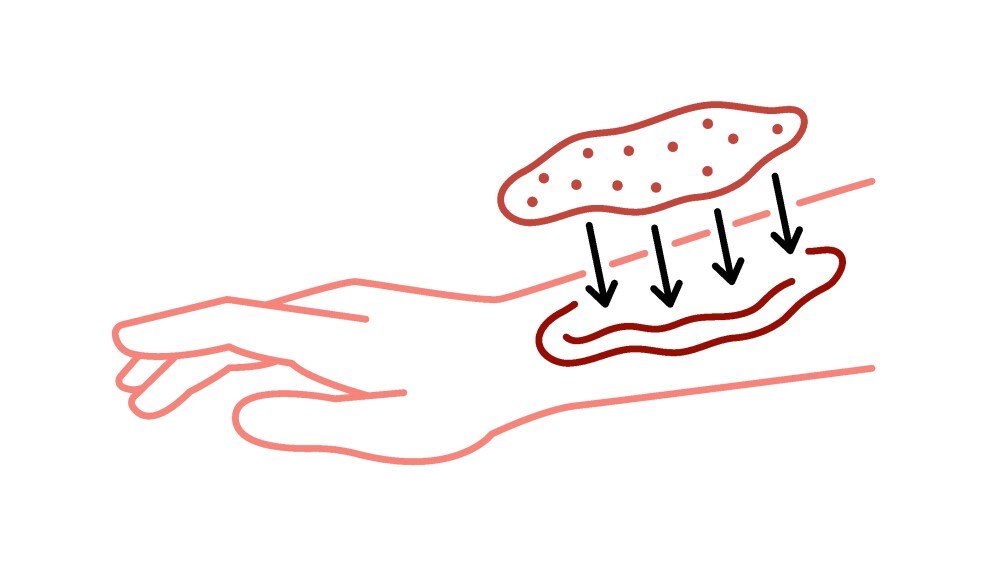Unicorn Hunters is a new Internet reality show where startup companies can pitch a group of well-known panelists dubbed the “Circle of Money” which allows for a kind of crowdsourced funding appeal.
Unicorn Hunters is a new Internet reality show where startup companies can pitch a group of well-known panelists dubbed the “Circle of Money,” which allows for a kind of crowdsourced funding appeal. In the third episode, Paramus, NJ and Vancouver, British Columbia-based Starton Therapeutics made their pitch.
The pitch was made by the company’s chairman and chief executive officer Pedro Lichtinger. He said, “If dose-related side effects can be reduced and people with cancer can tolerate maintenance therapy for decades to help stay in remission, these cancers, that were previously a death sentence, would become more akin to a chronic disease with a long lifespan and healthy quality of life.”
What the company is offering is its proprietary transdermal technology that would allow for different, long-term dosing of cancer therapies through a type of skin patch, which would slowly dose the drugs and potentially decrease side effects that can result in patients being unable to continue treatment or to take sub-optimal therapeutic doses.
Starton’s two lead products are STAR-LLD, a once-weekly transdermal and continuous subcutaneous formulation of lenalidomide for chronic lymphocytic leukemia (CLL), multiple myeloma (MM), and other cancers. The other is STASR-OLZ, once-weekly transdermal olanzapine for chemotherapy induced nausea and vomiting (CINV).
On March 22, the company announced it had completed a Type B pre-Investigational New Drug (IND) meeting with the U.S. Food and Drug Administration (FDA) over its proposed clinical trial for STAR-LLD. Based on that meeting, the company plans to run a Phase I relative bioavailability (BA) study starting in the fourth quarter of this year.
The Unicorn Hunters’ “Circle of Money” includes Steve Wozniak, co-founder of Apple; Silvina Moschini, chief executive officer of SheWorks!; Alex Konanykhin, chief executive officer of TransparentBusiness; Lance Bass, singer, actor, producer and investor; Rosie Rios, former Treasurer of the United States; and Moe Vela, attorney, author, entrepreneur and former Director of Administration to Joe Biden.
Unicorn Hunters says it “seeks to democratize access to wealth by making select pre-IPO opportunities accessible to investors and by leveling the field for founders who do not have access to traditional VC funding.” It goes on to argue that by making it accessible in this way, it allows viewers the opportunity to be informed and invest in entrepreneurs that are typically marginalized, such as women, minorities, and LGBTQ.
“Unicorn Hunters features companies that solve a global problem, are disruptive, and are led with passion,” said Moe Vela, who is also executive producer of Unicorn Hunters. “As a Latino, I know that there is a tremendous need to advocate for diversity and inclusion in funding and investment. So I am also very proud to welcome our first Hispanic founder to the Circle of Money stage and to introduce his company, Starton Therapeutics to the world.”
Unicorn Hunters episodes air every other Monday at 10 AM EDT on UnicornHunters.com. It is distributed in parallel by Amazon Prime and other online channels, including LinkedIn Broadcast, Facebook Video, YouTube and Vimeo.
Episode 1 focused on Faruv Technologies, which focuses on disinfection equipment and services. It uses a Krypton disinfection lighting and was under contract with NASA and other organizations well before the COVID-19 pandemic.
Episode 2 focused on Forte, a woman-owned tech company working in the fitness arena. They described themselves as having “developed a fully automated solution to help them seamlessly livestream classes, remain connected to millions of members in a virtual setting, and offer an incredible fitness experience from the comfort of home (or wherever participants choose to work out.)”
Biotechnology seems like an unusual category for crowdfunding since it generally requires a technology or life sciences background to understand the industry, what they’re trying to accomplish, and if it’s even possible to succeed. It’s also notoriously volatile, with commercial products typically at least a decade away, if ever.
On the other hand, it’s a way of generating publicity, and it wouldn’t be surprising if Unicorn Hunters becomes a must-watch show for venture capitalists, although the question will be if they can see past the show-biz hype to conduct actual due diligence to determine if the companies are worthwhile investments. Certainly, that is a potential problem for would-be investors who might watch the show.
Unicorn Hunters is part of a new genre dubbed “enrichtainment,” combining entertainment with the possibility of companies with high-potential to hit the so-called “unicorn” status of a $1 billion valuation. And indeed, the potential audience is in the millions.





